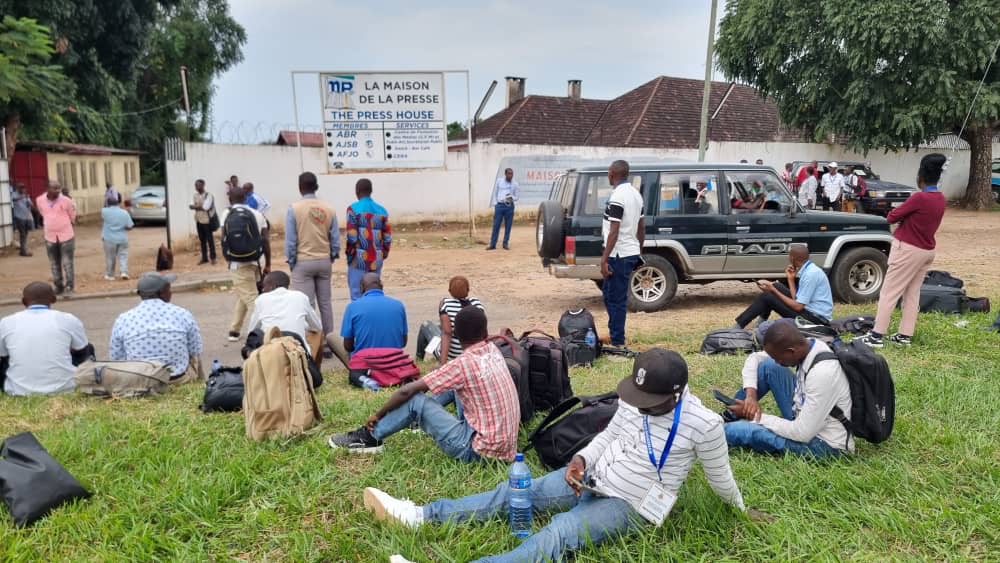June elections : media between satisfaction and abuses, the CNC takes stock

SOS Médias Burundi
Bujumbura, July 1, 2025 – The National Communication Council (CNC) expressed overall satisfaction with the conduct of the media during the district and legislative elections of June 5, 2025. Its president, Espérance Ndayizeye, announced this on Monday during a press briefing at the Burundi Press House, located in the commercial city of Bujumbura.
During this press briefing, the president of the regulatory body congratulated the media as a whole.
« Generally speaking, the audiovisual, print, and online media professionally covered all stages of the electoral process in compliance with the law, » Ms. Ndayizeye stated.
The CNC particularly welcomed the discipline of the journalists, who waited for the official publication of the results by the Independent National Electoral Commission (CENI) before publishing any results.
The CNC President also praised the collaborative work of the media, which helped highlight both the progress and irregularities in the electoral process, facilitating a rapid response from the CENI. She highlighted the mobilization of journalists deployed throughout the country, ensuring national coverage of this crucial event.
Incomplete equal access in public media
However, Ms. Ndayizeye noted certain irregularities, including imbalances in the treatment of information and cases of defamation. She cited as an example the National Radio and Television of Burundi (RTNB), which, despite broadcasting the social projects of the 29 contenders—political parties and one coalition—did not equitably respect the 15-minute airtime allotted for each. Criticisms deemed overdue and a call for transparency
The CNC president also expressed surprise at the complaints made by some journalists after the elections, claiming they had not been able to practice their profession freely.
« These difficulties should have been reported before the elections, » she responded, calling on media professionals to provide concrete evidence when they denounce obstacles or irregularities.
She also assured that no major incidents were reported against journalists during the election period. « They were able to work in complete safety and peace, » she insisted.
Media in the CNC’s sights
Despite this generally positive assessment, the CNC’s monitoring service identified several shortcomings in certain media outlets : imbalances in the treatment of information, unfounded accusations, exaggerations, biased content, and cases of defamation.
The newspapers Iwacu, Iris News, Jimbere, and Yaga were cited for their inadequate coverage of the election campaign. International media outlets such as RFI and France 24 were also singled out in the Council’s observations.
In conclusion, Ms. Ndayizeye appealed to media professionals :
« We encourage journalists and media outlets to strengthen their professionalism, especially during election periods, because a free and responsible press remains a cornerstone of democracy. »
Hidden realities on the ground?
However, SOS Médias Burundi has documented several cases that contrast with the assessment presented by the National Council of the Democratic Republic of the Congo (NCC).
On the eve of the elections, some journalists did not leave the commercial capital, Bujumbura—where UN agencies and the central administration are based—until around 11 p.m., even though they were supposed to be covering very remote areas on the borders with Rwanda, the DRC, and Tanzania.
On the election day, several reporters were denied access to polling stations during the vote counting process. Furthermore, no journalist was allowed to cover the electoral process without being part of the centralized media synergy located within public media outlets, or without obtaining special authorization from the Electoral Commission.
These restrictions continue to be denounced by many professionals, who believe they significantly limited press freedom and prevented fully independent coverage of the elections.

